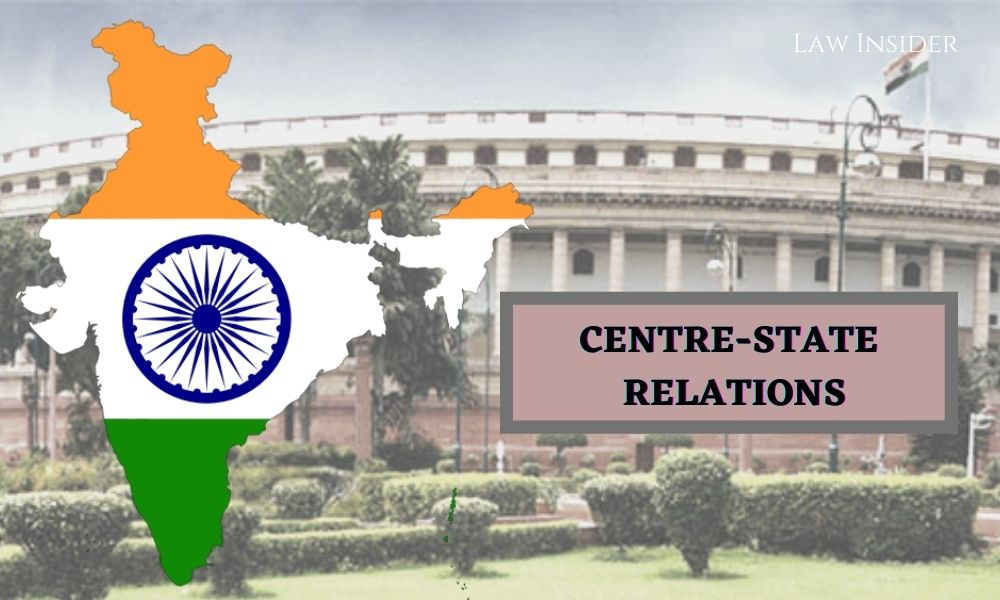Description

Copyright infringement not intended
Context: The Union Ministry of Home Affairs (MHA) has decided to start the process of seeking the states’ comments on the Punchhi Commission’s report on Centre-state relations
Punchhi Commission
- In April 2007, the Indian government established a Commission on Centre-State Relations under the leadership of Justice Madan Mohan Punchhi, a former chief justice of India, to examine the new challenges in Centre-State relations while taking into account the changes that have occurred in India's polity and economy.
- The Commission examined and reviewed how the existing arrangements between the Union and States were functioning, as well as various court rulings regarding the powers, duties, and responsibilities in all areas, including legislative relations, administrative relations, the role of governors, emergency provisions, financial relations, economic and social planning, Panchayati Raj institutions, and sharing of resources, such as inter-state river water.
- The Commission presented its seven-volume report to the government in March 2010.
- The Inter-State Council's (ISC) Standing Committee considered the suggestions of the Punchhi panel at its meetings in April 2017, November 2017, and May 2018. The "work on Punchhi Commission Report has been concluded," the Centre declared after the ISC's Standing Committee meeting in May 2018.
.jpeg)
Highlights of the Punchhi Commission Report
Recommendation on the Finance Commission
- Issues mentioned in the Finance Commission's terms of reference should be addressed equally by the Center and the States. An efficient method for including the States in the formulation of the FinanceCommissions' final terms of reference should develop.
- The Planning Commission and Finance Commission should work together. Such coordination will be greatly enhanced by coordinating the Finance Commission's and the five-year plan's time frames.
- It expressed concern over the rise in the amount of money being raised through cess and surcharges. To reduce their contribution to gross tax income, it was advised that the Central Government review all of the current cess and surcharges.
Recommendation on Governor
- He must be appointed after consultation with the Chief Minister of the State concerned.
- He must be an impartial person who is not very involved in the state's local politics and should be from outside the state.
- He should be a person who has not taken an active part in politics in the recent past at least two years before his appointment.
- A committee needs to be formed and given the responsibility of selecting the governors. The Speaker of the Lok Sabha, the Prime Minister, the Home Minister, and the concerned State's Chief Minister may all be members of this committee.
- His tenure in office must be guaranteed, and it shouldn't be interrupted unless there are extremely strong reasons. He must be given a fair chance to object to the grounds for removal and a chance to explain justification. If the Governor is fired or resigns, the government is required to present a statement to both Houses of Parliament outlining the reasons for the termination or resignation, as applicable.
- Recommendation of provision for the Governor's impeachment by the State Legislature.
Other Major Recommendation Of the Punchhi Commission
- On Article 355 and Article 356: The report also recommended amending Articles 355 and 356 of the Constitution. The recommendation aims to safeguard States' interests by preventing the centre from abusing its power. It was suggested that only the disturbed area should fall under the control of the Center, rather than declaring an emergency across the entire state.
- On Concurrent List: The Commission recommended that the States should be consulted through the inter-state council before bills are introduced on matters that fall in the concurrent list.
- On National Integration Council: It suggested developing an overriding mechanism for issues involving internal security. The National Integration Council could be the name of this organisation.

Conclusion: The Punchhi Commission's report is informative and contains great suggestions for effective union-state coordination and cooperation. Some of the ideas have been put into practice, including the one to have the governor come from outside the state. To maximise their effectiveness, these recommendations should be put into practice within a suitable framework.
|
PRACTICE QUESTION
Q. Consider the following Statements related to the Punchhi Commission.
1. It suggested the Central Government to review the current cesses and surcharges.
2. It recommended that the Governor must be appointed after consultation with the Chief Minister of the State concerned.
3. It recommended a committee needs to be formed and given the responsibility of selecting the State Governors.
Which of the following Statement is/are correct?
(A) 1 and 2 only
(B) 2 and 3 only
(C) 1 and 3 only
(D) 1, 2 and 3
Answer: D
Explanation:
Statement 1 is correct: Punchhi Commission expressed concern over the rise in the amount of money being raised through cesses and surcharges. To reduce their contribution to gross tax income, it was advised that the Central Government review all of the current cesses and surcharges.
Statements 2 and 3 are correct: Punchhi Commission recommendation on Governor:
He must be appointed after consultation with the Chief Minister of the State concerned.
A committee needs to be formed and given the responsibility of selecting the governors. The Speaker of the Lok Sabha, the Prime Minister, the Home Minister, and the concerned State's Chief Minister may all be members of this committee.
|

https://indianexpress.com/article/political-pulse/punchhi-panel-work-centre-state-views-8472376/














